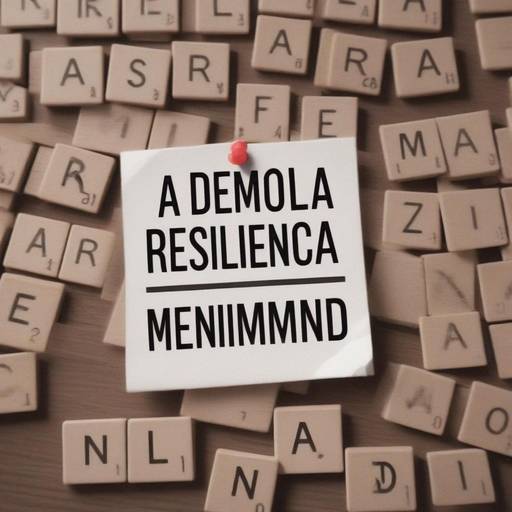
Introduction
Have you ever felt limited by your own beliefs? Limiting beliefs are rooted in our minds that prevent us from reaching our potential. In this article we will explore in depth what limits beliefs, how to identify and change them to develop a culture of growth and advance our personal development. You will discover practical strategies and advice supported by experts to free yourself from these mental limitations and achieve your goals.
What are the Limiting Beliefs?
Limiting beliefs are entrenched thoughts that prevent us from moving forward. They often form from past experiences, subconscious messages or negative external influences. These beliefs can manifest in phrases like "I'm not good enough," "I'll never succeed" or "I don't deserve to be happy." Identifying and challenging these beliefs is crucial to freeing our potential.
History and background
The study of limiting beliefs has its roots in psychology and philosophy. From the theories of Maslow's self-esteem to the latest research on the psychology of Carol Dweck's success, several perspectives have been explored on the influence of beliefs on our behavior and achievements. Over time, these ideas have evolved and have demonstrated a significant impact on the personal and professional development of people.
When people discover and challenge their limiting beliefs, they can experience transformative changes in their lives. Cases have been documented where people have left unsatisfactory jobs, new projects have been undertaken and targets have been set that previously seemed unreachable.
Deep analysis
Limiting beliefs can have significant impacts on self-esteem, decision-making and emotional well-being. It has been shown that these beliefs generate patterns of behavior that perpetuate undesired situations, limiting growth and personal development.
Comprehensive review
It is essential to understand that overcoming limiting beliefs is a continuous process that requires patience, self-discovery and constant practice. By adopting a culture of growth and focusing on personal development, people can gradually transform their lives.
Comparative analysis
Limiting beliefs, the mentality of growth and personal development are closely related. By comparing and contrasting these concepts, we can identify opportunities to overcome obstacles and improve our growth.
Accessible practical advice and recommendations
The first step to change limiting beliefs is to recognize them. Then we can question their validity and replace them with positive thoughts and actions. Here are some practical tips to change limiting beliefs:
- Practice self-consciousness: Watch your thoughts and detect limiting patterns.
- Ask your beliefs: Critically analyze the truthfulness of your negative thoughts.
- Adopting the growth mentality: Believe in your ability to learn and grow.
- Find support: Share your goals and challenges with people who support and motivate you.
- Visualize yourself successfully: Imagine how your life would be if you overcome your mental limitations.
Perceptions and views of experts
Experts in psychology, personal development and leadership have shared valuable knowledge of the importance of facing limiting beliefs. Some experts have recommended techniques such as meditation, therapeutic writing and cognitive reprogramming as an effective means of overcoming these mental limitations.
Case Studies and Real Life Applications
Case studies are powerful testimonies that show how people have overcome their limiting beliefs and succeeded in different areas of their lives. These inspiring stories illustrate the transformative impact of challenging limiting beliefs and cultivating a growing mentality.
Predictions and Future Throne
As awareness of the impact of limiting beliefs continues to grow, new strategies and approaches are likely to emerge to address this problem. The integration of technology and psychology through mobile applications and online platforms is expected to provide access to innovative tools to work on changing limiting beliefs.
Conclusions
Defying limiting beliefs is a fundamental process to achieve our maximum potential. By adopting a culture of growth and working on our personal development, we can significantly transform our lives. It is crucial to remember that change does not happen overnight, but with perseverance and focus, we can free ourselves from mental limitations and create a full and satisfactory life.
Frequently asked questions
What techniques can I use to identify my limiting beliefs?
You can use meditation, introspection and conscious observation of your thoughts to identify limiting patterns. It is also useful to pay attention to your emotional reactions to certain situations, as they may reveal underlying beliefs.
How can I change my limiting beliefs?
An effective strategy is to question the validity of their beliefs and replace them with positive affirmations. The practice of creative visualization and gradual exposure to situations that challenge your beliefs can also be useful.
What is the importance of the growth mentality in the process of changing limiting beliefs?
The growth mentality allows us to believe in our ability to learn and develop, which in turn helps us to challenge and change our limiting beliefs. By adopting a culture of growth, we are open to change and new possibilities.
How can I remain motivated during the process of changing limiting beliefs?
It is useful to establish clear goals, surround yourself with people of a positive mentality and celebrate small achievements along the way. The support of a mentor or coach can also provide guidance and motivation.
Is there any possibility of limiting beliefs to emerge again after having changed them?
Yes, limiting beliefs can reappear in times of stress or challenge. Maintaining self-care practices, such as meditation, exercise and continuous self-creation, can help you maintain a positive approach and resist the re-emergence of such limiting beliefs.
Should I seek professional help to change my limiting beliefs?
If you feel that your limiting beliefs are having a significant impact on your daily life, consider seeking guidance from a therapist, coach or counselor. Professional assistance can provide you with the necessary tools and support to effectively address these beliefs.
Conclusion
Congratulations! You have completed reading our article on how to identify and change limiting beliefs. We hope you have found valuable and practical information that will help you challenge and overcome your mental limitations. Remember, the process of changing limiting beliefs takes time and effort, but the results can significantly transform your life. Go on!






















































